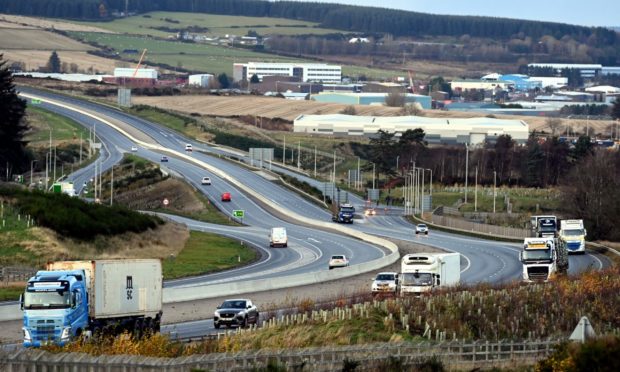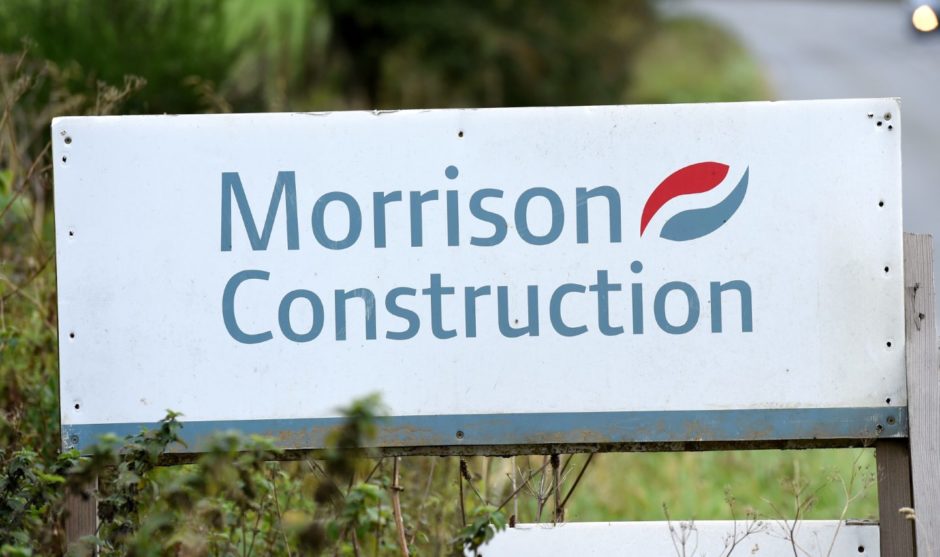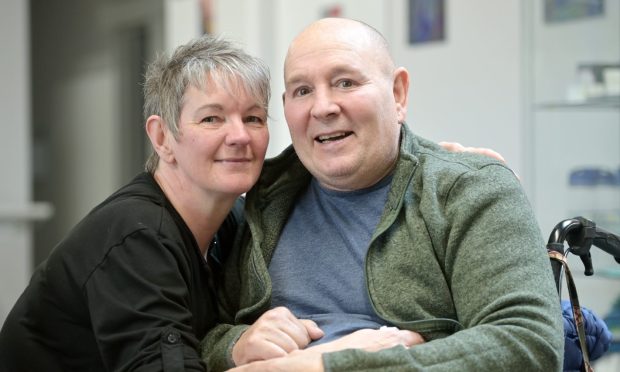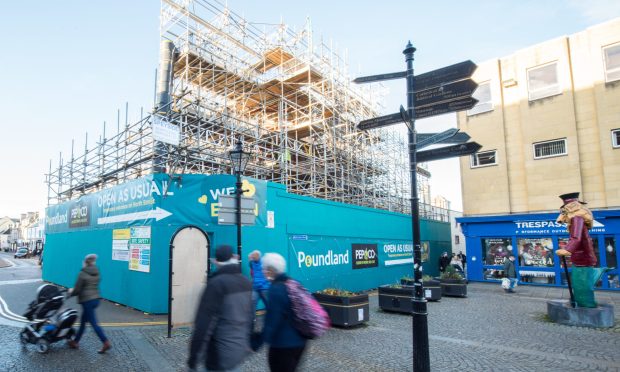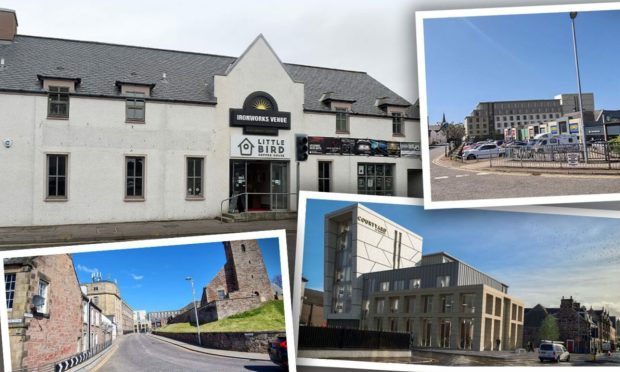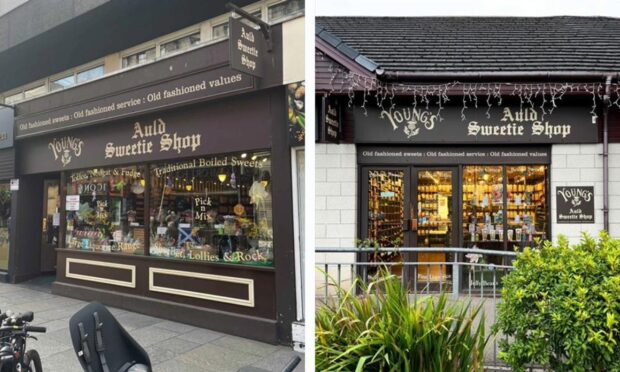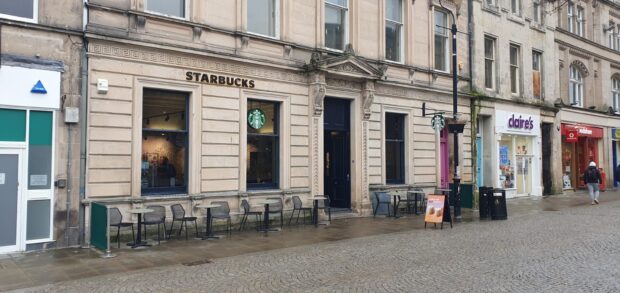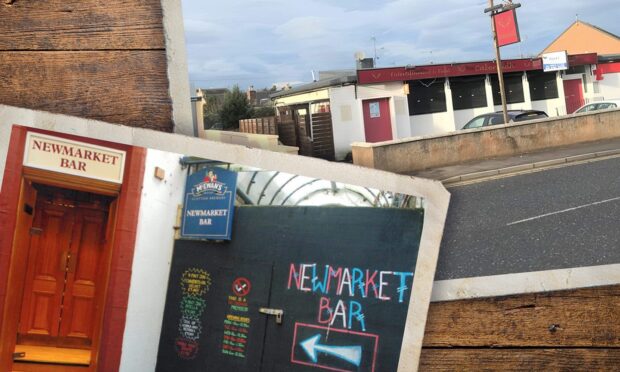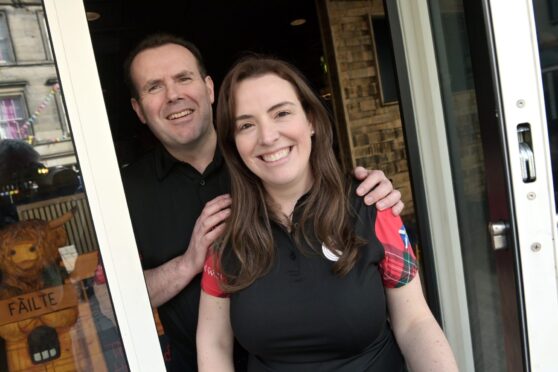The financial challenges of building a bypass road around Aberdeen have left their mark on construction firm Galliford Try.
UK Government plans to build a bridge or tunnel between Scotland and Northern Ireland – dubbed the “Boris Bridge” project – have been axed but if they ever resurface, Galliford Try will not go near them, the company’s boss said today (September 16).
Chief executive Bill Hocking stood by the firm’s policy of not bidding for any more large infrastructure jobs on fixed-price contracts in the wake of the Aberdeen Western Peripheral Route (AWPR) fiasco, which impacted annual results posted by the group.
We have dealt with challenging circumstances and continue to successfully manage the current market conditions.”
Bill Hocking, chief executive, Galliford Try.
Asked if the Middlesex-based company was ever interested in the proposal to link Scotland and Northern Ireland or if it may bid for such a project in the future, Mr Hocking said: “We wouldn’t touch it with a bargepole”.
Galliford Try was one of the partners in the consortium, Aberdeen Roads, behind the £1.5 billion-plus AWPR project.
One of the other companies initially involved – Carillion – went bust, leaving Galliford Try and Balfour Beatty to shoulder extra costs.
Major delays for the development drove up the total cost, pushing the price tag well beyond its £745 million Transport Scotland price tag.
AWPR compensation
Galliford Try and Balfour Beatty later secured extra cash from the Scottish Government to compensate for their hefty losses.
A sum of £32m for Galliford Try’s “final agreement” impacted Galliford Try’s results for the year to June 30.
Revenue came in at around £1.12 billion – almost flat on the year before, when the total was boosted by the £32m AWPR settlement.
The Middlesex-based group – parent to Scottish company Morrison Construction – posted pre-tax profits of £11.4m for the latest period, compared with Covid-driven losses of £34.6m in 2019-20.
Galliford Try said its return to the black was built on a “strong operational performance”.
It also highlighted a “high quality” £3.3bn order book – up from £3.2bn a year ago – and progress towards its net-zero and financial targets.
Mr Hocking said: “I am very proud of the progress the group has made over the last year.
‘Excellent order book’
“We have dealt with challenging circumstances and continue to successfully manage the current market conditions.
“Our commitment to robust risk management, careful contract selection and operational excellence underpins our performance and prospects.
“The group has an excellent order book and balance sheet. We are strongly positioned to meet the increasing demand for social and economic infrastructure in the UK and deliver growth.”
Mr Hocking said Morrison Construction was generating 25-30% of total group revenue.
The Scottish business enjoyed “a very good year” in 2020-21 and is poised to benefit from a strong pipeline of projects in the coming year, he said.
He also said Galliford Try had not been immune to building material shortages that have blighted the wider UK construction industry in recent months, but the company had largely mitigated the impact of these by building up its inventory in advance.
The Scotland-Northern Ireland link plans, estimated to cost the taxpayer at least £15bn, were reportedly axed due to constraints placed on public spending by the Treasury.
